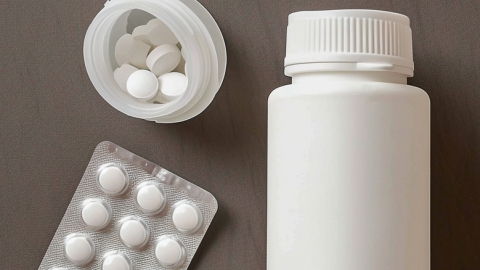What anti-inflammatory medication should be taken for anal fistula?
Anal fistula can be treated under a doctor's guidance with oral anti-inflammatory medications such as cefixime dispersible tablets, levofloxacin tablets, metronidazole tablets, amoxicillin capsules, and roxithromycin capsules. These are primarily used to control infection and relieve inflammation, and should be used appropriately according to the specific condition. If the infection worsens, an abscess forms, or there is no improvement after medication, prompt medical attention is recommended.

1. Cefixime Dispersible Tablets: A cephalosporin antibiotic effective against various bacteria, it inhibits bacterial growth at the site of anal fistula infection, reducing redness, swelling, and pain. It should be taken as prescribed, and alcohol or alcohol-containing foods should be avoided during treatment.
2. Levofloxacin Tablets: A quinolone antibiotic with broad-spectrum antibacterial activity, suitable for complex infections associated with anal fistula. It effectively controls the spread of inflammation. It is contraindicated in individuals under 18 years of age and pregnant women. Treatment duration should be adjusted according to medical advice.
3. Metronidazole Tablets: Highly effective against anaerobic bacterial infections, which commonly accompany anal fistula. It specifically targets pathogens, helping to alleviate symptoms such as pain and pus discharge. Some individuals may experience gastrointestinal discomfort; taking the medication after meals is recommended.
4. Amoxicillin Capsules: A penicillin-class antibiotic with moderate antibacterial action, suitable for mild anal fistula infections or as postoperative support to prevent infection. Patients must confirm they have no allergy to penicillin before use. The full course should be completed as prescribed to prevent antibiotic resistance.
5. Roxithromycin Capsules: A macrolide antibiotic suitable for patients allergic to cephalosporins or penicillin. It works by inhibiting bacterial protein synthesis, thereby reducing inflammatory responses. Avoid consuming spicy foods while taking this medication.
During anti-inflammatory treatment, it is essential to take the full prescribed dose and complete the entire course—do not discontinue medication prematurely. Maintain a light, easily digestible diet, drink plenty of water to promote drug metabolism, keep the anal area clean, avoid prolonged sitting, and minimize local irritation to support inflammation resolution.




